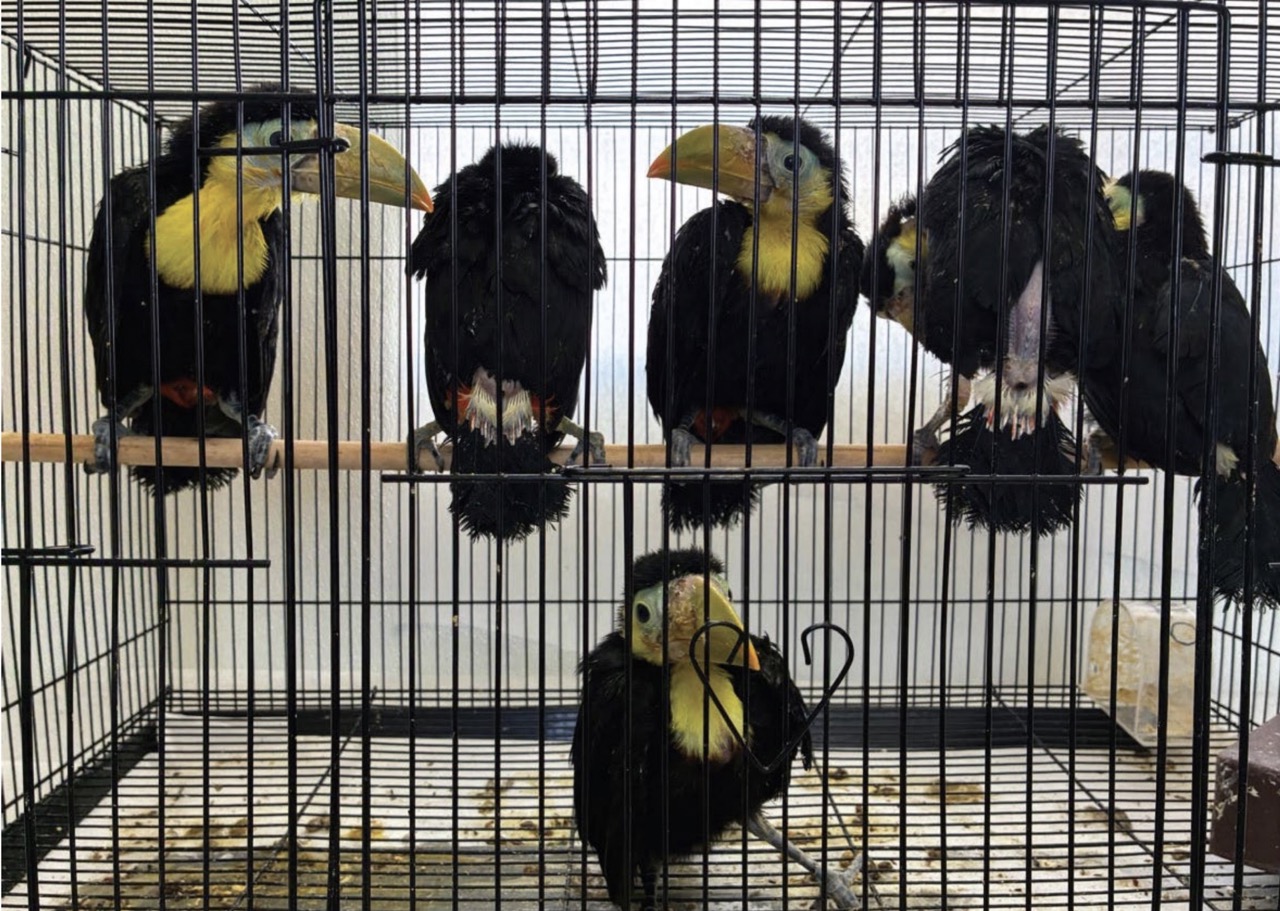
A San Ysidro man was charged Wednesday in San Diego federal court with attempting to smuggle 14 exotic toucans across the U.S.-Mexico border after the protected birds were found bound and hidden in his car’s dashboard.
The driver, 35, was charged with smuggling merchandise and importation contrary to law, according to federal prosecutors.
The arrest occurred June 25 at the Otay Mesa Port of Entry after a Customs and Border Protection dog alerted its handler to a Volkswagen Passat during a screening, according to federal prosecutors and court records. An officer searched the car and found a bird wrapped in cloth and duct-taped underneath the car’s dashboard.
A bound juvenile toucan is found duct-taped underneath the dashboard of a car stopped at Otay Mesa Port of Entry. (U.S. Attorney’s Office)
The officer didn’t know what the bound object was until it began to move and flutter, prosecutors said. He and his colleagues then pried open a side panel of the dashboard and reportedly found 13 more bound and sedated birds.
Related Articles
Silicon Valley VC helps lead controversial race to start mining ocean floor
Wild turkeys roam freely in Bay Area suburbs, but where exactly are they from?
Coyote season is on. Here’s how to stay safe
Shark prompts closure at Seacliff State Beach
A woman’s house in Northern California was burglarized so many times that even bears went in
Officials from the U.S. Fish and Wildlife Service were called to the scene, and a wildlife inspector recognized the animals as juvenile Keel-billed toucans — an exotic species that can be sold for upwards of $5,000 per bird on the black market, prosecutors said.
The 14 birds were immediately taken to veterinary services at the southern border, according to investigators. Some of the toucans were diagnosed with broken tails, and at least one had a broken leg.
The birds were then transferred to the Department of Agriculture Animal Import Center for further care and quarantine, prosecutors said. They are all expected to survive their injuries.
Officials said the birds are protected under the Convention on International Trade in Endangered Species and are native to an area between southern Mexico and Ecuador.
“Smuggling endangered birds by sedating them, binding their beaks, and hiding them in car compartments is not just cruel — it’s criminal,” U.S. Attorney Adam Gordon said in a statement. “This disturbing trend of trafficking exotic wildlife through Southern California ports poses a serious threat to public health and agriculture. These birds bypass mandatory quarantine and screening, potentially carrying devastating diseases like avian influenza.”